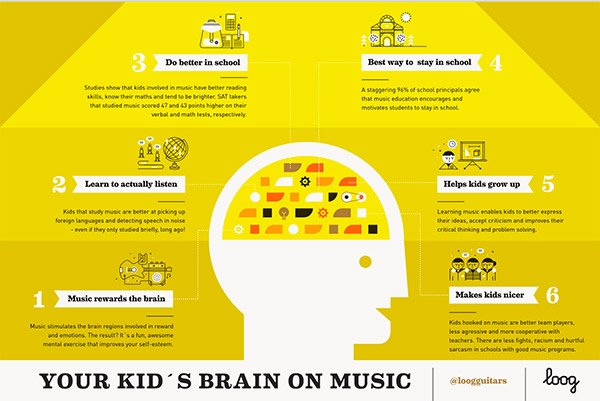Importance of Introduction to Music at an Early Stage: Little Mozart
There are different reasons you may want to introduce your child to music at an early stage. Who wouldn’t want a little Mozart at home? Asides from helping to build a child’s musical talent from an early stage, there are several other benefits children can gain from early introduction to music. In this post, we are going to briefly discuss some of the most important of these benefits.
Music Improves Thinking Skills
At the early stage of life, your child needs to learn how to think properly. There are several activities that can help with this including games. Music, also, has been found to be a great tool when it comes to the development of thinking skills. When children start interacting with musical instruments, they learn about cause and effect and become aware of changing sounds. These all contribute to build thinking skills. This thinking skills also birth imagination and creativity.
Music Builds Listening Skill
This is a skill that is often overlooked by many. In fact, there are several individuals (adults) that do not believe that listening requires special skill or that this skill needs to be developed in a child. The reality, however, is that listening is an important skill for a wholesome individual, and music helps to build it. This positive aspect of music is further explored in this article: “Music training for the development of auditory skills”
Music Improves Language Development
Music is arguably the most powerful tool when it comes to speech and language development. This is why children are taught with rhymes at the nursery level. When a child is introduced to music at an early stage, he/she will develop language skills that will shape his/her communication skills throughout life. Another aspect is the improvement of language through reading skills. More information in this great article from ScienceDaily “Music Education Can Help Children Improve Reading Skills”
Music Helps Build Motor Skills
Playing an instrument at an early age improves coordination. In Winchester, our school introduces piano to children as young as 3 years in our Notes In Motion, early musical education group classes.
Have you ever wondered why children engage in such finger plays like “Five Little Monkeys Jumping on the Bed” or what it actually helps them to learn? It actually help them to practice fine-motor coordination. Playing musical instruments at a tender age also improve hand and finger control just as dancing to music help children learn hand and leg control.
Music Shapes Emotion
Music soothes and comforts: it shapes emotion and helps in the development of a wholesome individual. Think of lullabies and the immediate effect they have on children. By introducing your child to music at the early stage, you will be helping him/her process emotions better and this will ultimately help in all stages in life.
Music Can Improve Family Bond
Music can improve the bond between your child and you, as well as other members of your family. Music provides joy and if your child is joyful, you will always share in his/her joy and this brings you closer.
Introducing your child to music have lots of amazing benefits and the points raised here are some of the most important ones. In all, early introduction to music will help your child to develop better and boost his/her chances of general success in life.
If you live in Winchester MA or surrounding cities, and you are interested in introducing your child to music, check out “Notes In Motion”, our early musical education group program. We also offer a free group lesson “Intro to Piano" on November 3rd at 11.00 am for kids age 3 to 4.5. Registration is required.
Other articles you might be also interested in:
51 Benefits Of Arts Education Of Arts Education For Kids (great infographic!)
Your kid’s brain on music and its origin from this blog full of ressources on the subject


